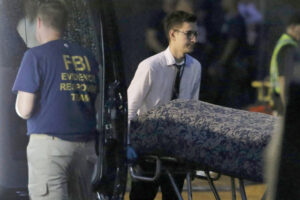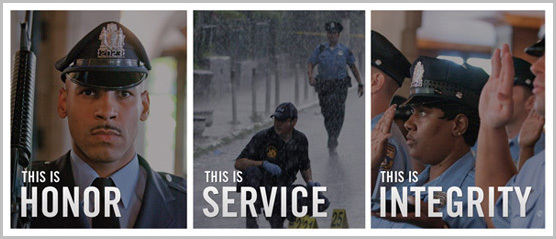A year ago, police officers responded to the Pulse Night Club Shooting in Orlando, Florida. Today many of those officers continue to see the horrific scenes in their dreams, nightmares and flashbacks. Sometimes they are reminded of what they witnessed that night when responding to a current call for service. They call these memories the wounds that don’t bleed. Many of the first responders including police officers, fire/rescue personnel, doctors and nurses report that they’ve try to prepare for mass casualty events but nothing prepared them for the Pulse Night Club shooting. The casualties included 49 people killed, 53 people seriously injured and many struggling with their mental emotions.
Officers report that they are reminded of that tragic day every day they work. For some it is just driving by the scene on Orange Avenue. For others, it’s hearing cell phones ring. It instantly takes them back to that night at Pulse, hearing victims’ cell phones ring constantly with loved ones trying to reach them and not knowing if the person was ok. Some responders reported that as they carried victims from the club, they talked to them. Telling them that they were going to be ok, even though they had been shot. As officers placed the victims in pick-up trucks to be transported to the hospital, they died in the officer’s arms arms. Many officers are constantly haunted by the memories a year later.
These First Responders are suffering from what is known as Critical Incident Trauma. My friend, Dr. Roger Solomon describes a critical incident as “any situation that results in an overwhelming sense of vulnerability or loss of control.” Dr. Jeff Mitchell describes a critical incident as “any situation faced by emergency service personnel that causes them to experience unusually strong emotional reactions which have the potential to interfere with their ability to function either at the scene or later. (1)
Trauma is, in part, “An emotional shock that creates substantial and lasting damage to the psychological development of the individual…” (2) Post Traumatic Stress Disorder is called a disorder because it disrupts the normal functioning of our lives. It disrupts sleep, relationships, work and physical health. PTSD is called an anxiety disorder because some of its chief attributes are anxiety, fear and avoidance of anything – feelings, people, places – we feel may cause us pain. (3)
-
Critical Incident Trauma by Roger Solomon, Ph.D.
-
Webster’s II New Riverside Dictionary Office Edition
-
In Emergency Services Stress, New Jersey 1990, Dr. Jeff Mitchell and Dr. Grady Bray
In 1980, PTSD was recognized as a disorder with specific symptoms that could be reliably diagnosed and was added to the American Psychiatric Association’s Diagnostic and Statistical Manual of Mental Disorders. Current research reports that 70% of adults in the U.S. have experienced some type of traumatic event at least once in their lives and up to 20% of these people go on to develop PTSD. According to the research, one in five Police Officer are at risk for PTSD. (4) If these figures are accurate, 1 out of every 5 police officers who responded to the Pulse Night Club Shooting on June 12, 2016 have symptoms of PTSD. Many suffer in silence and others seek help. According to Lt. Col. David Grossman, U.S. Army – Retired, a human being takes information into the body in three ways… what we see, what we hear and what we smell. The officers who responders to the Pulse Night Club Shooting witnessed first-hand through their senses of seeing, hearing and smelling the worst mass shooting in U.S. history.
Lesson Learned: The P S U Crisis Management and Training Group believes that law enforcement officers need more reality-based training when it comes to dealing with critical incidents like the Pulse Night Club Shooting. Officers need to prepare for the unimaginable event as well as the aftermath. Agencies also need to provide services for officers who are suffering from the wounds that don’t bleed. We have reached a “New Normal” in Orlando. We must commit to caring for our law enforcement personnel. Every day these brave men and women put their lives on the line…Physically and Emotionally. We must encourage our officers that it takes courage to work in law enforcement and it takes courage to ask for assistance. Don’t go it alone!
Contact the P S U Crisis Management and Training Group for more information on program services and training for your agency. Call 407-497-1465.
Lets Be Careful Out There and Stay Safe!


